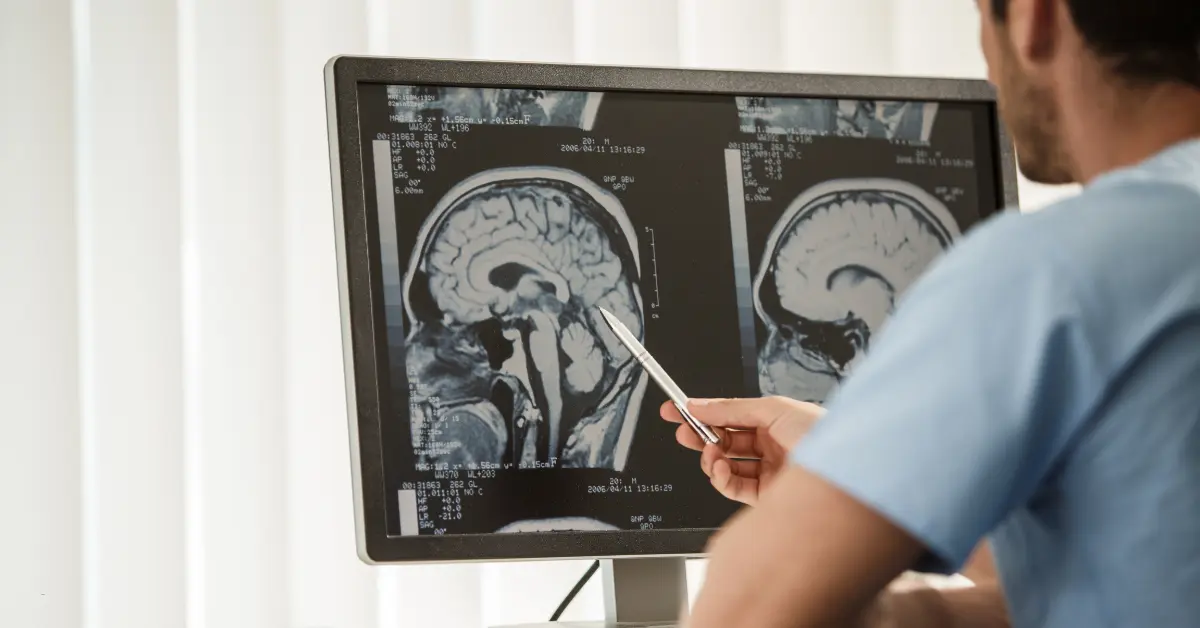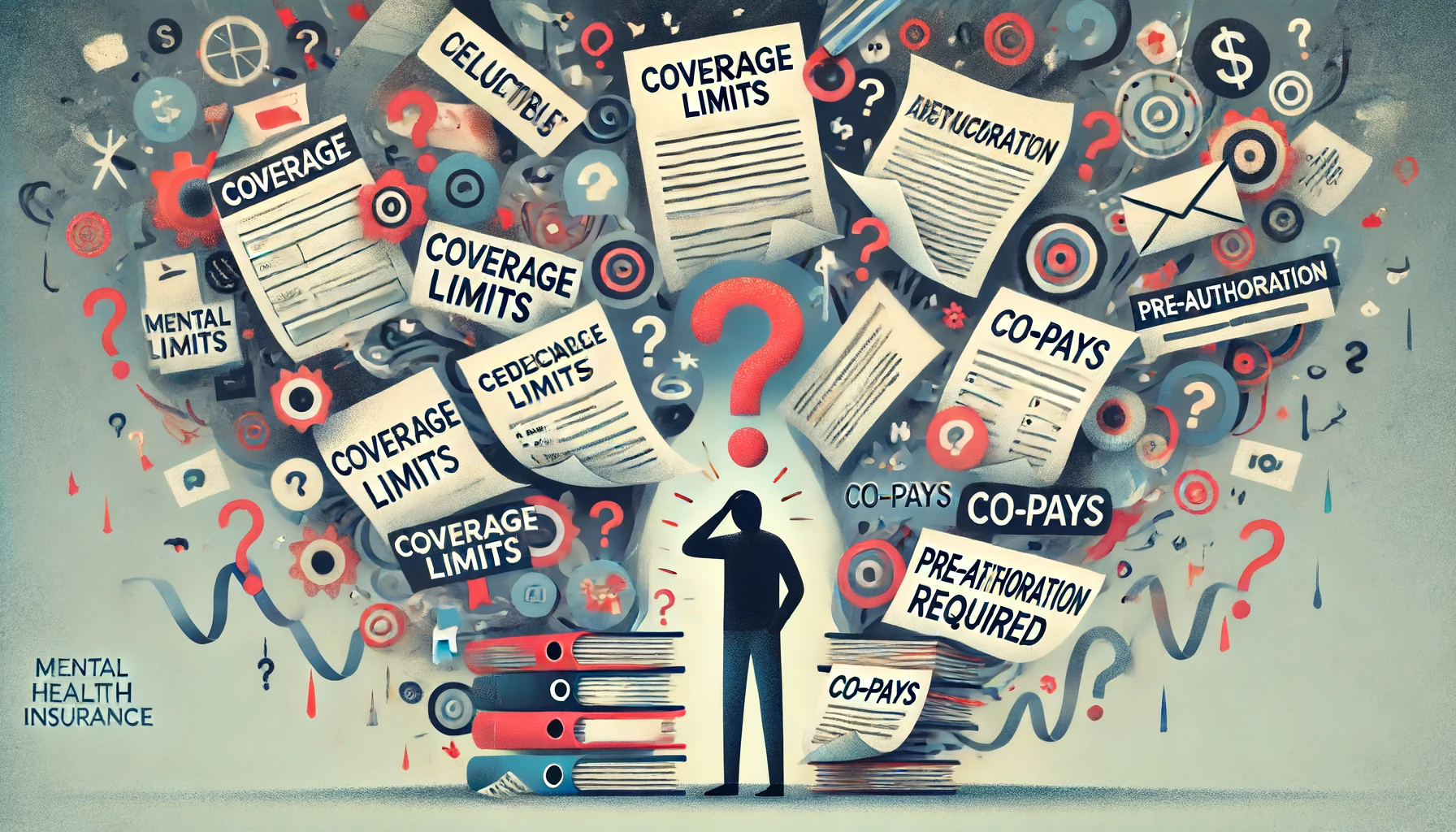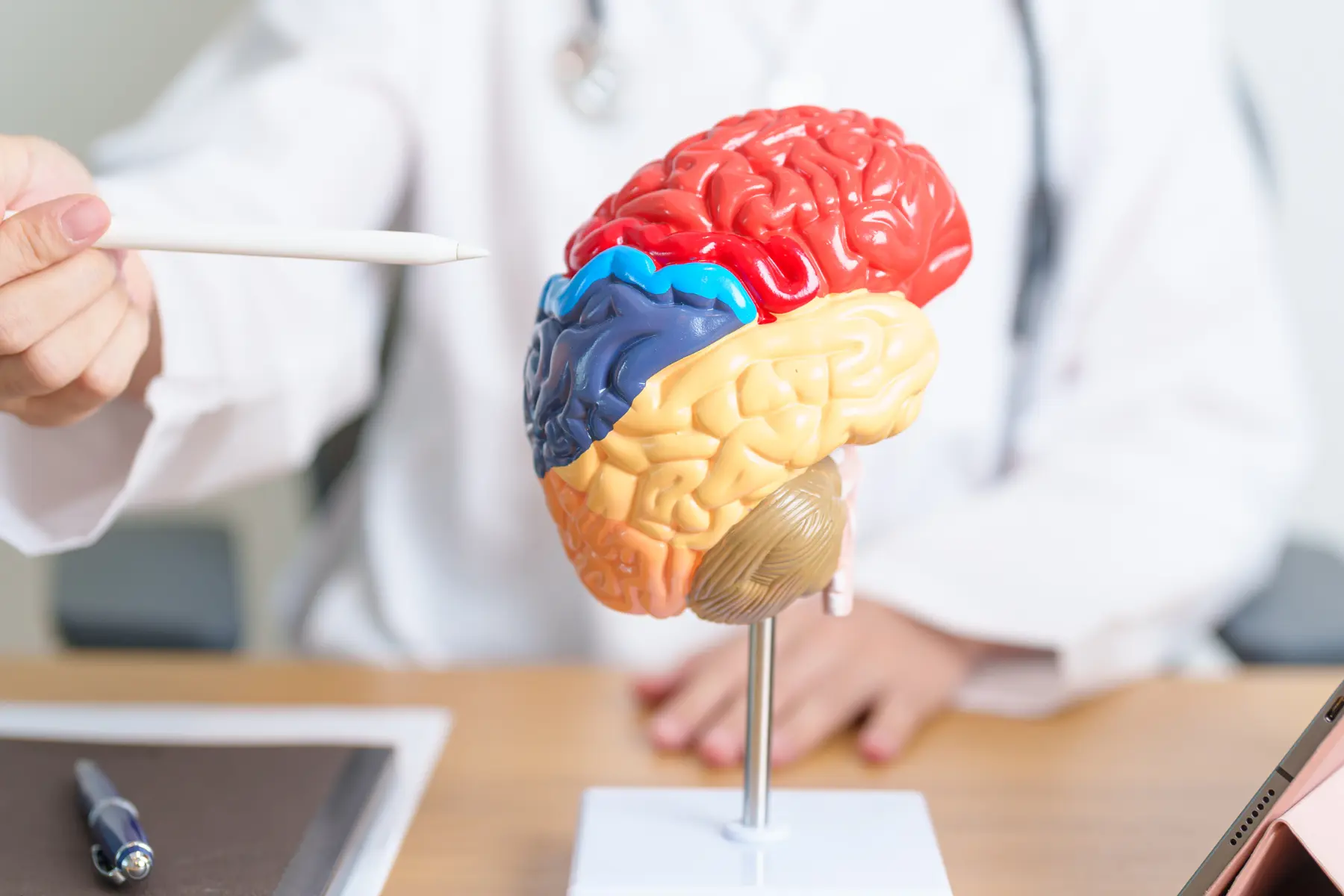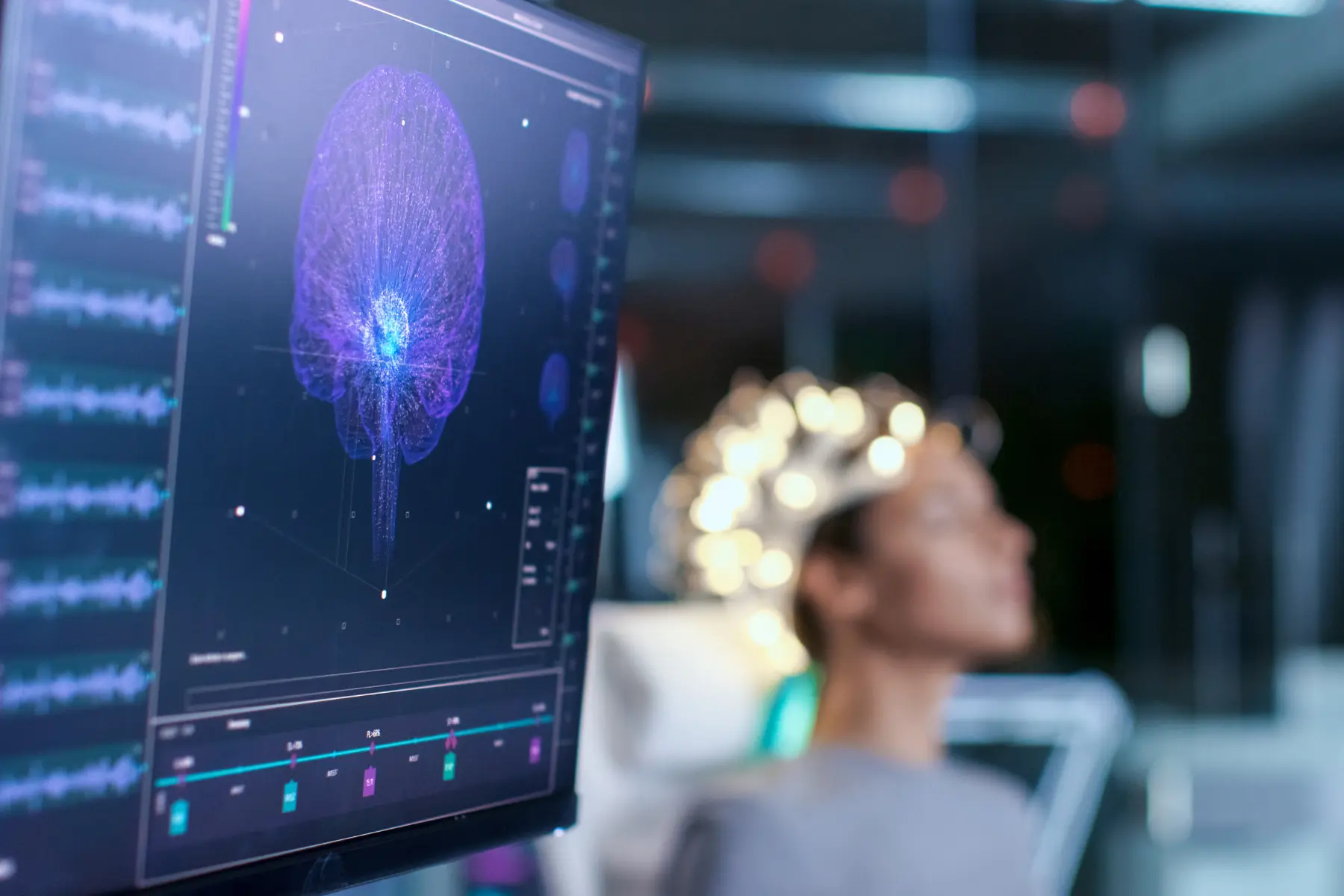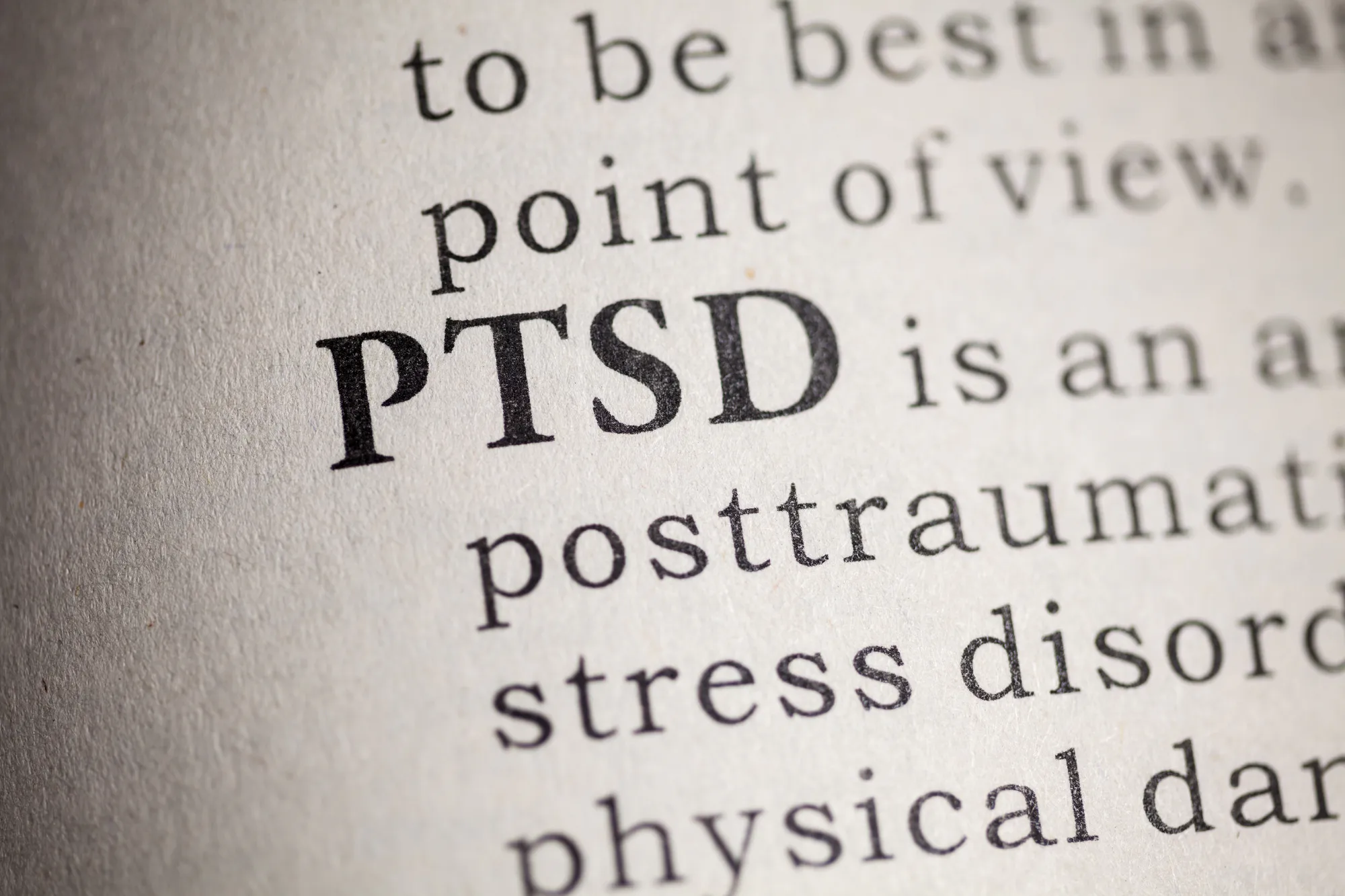Transcranial magnetic stimulation (TMS) is an FDA-approved treatment for depression that is long-lasting and doesn’t involve any medication. It’s especially effective for people with treatment-resistant depression who don’t find relief from standard antidepressants. A typical treatment course consists of 30 sessions of TMS, and can provide symptom relief that lasts for months. TMS is effective for over 50% of patients, making it one of the most effective treatment options for individuals with depression.
TMS works by transmitting magnetic pulses into the brain in a targeted area in order to stimulate or modulate neural activity. The process is non-invasive and simply involves applying a TMS machine to the scalp for a short period of time, typically just a few minutes. Additionally, the side effects are few and far between, with most patients reporting a knocking sensation or scalp sensitivity during treatment, and a mild headache that subsides quickly. Compared to conventional antidepressants, TMS is a game-changer for people struggling with depression.
Although it still isn’t widely known, TMS has been around for decades. Developed in the 80’s, the technology isn’t just used to treat depression. Let’s take a look at some of the other uses for TMS:
1. Anxiety
There’s substantial research that shows TMS is an effective treatment for anxiety disorders. Many anxiety disorders such as GAD and social anxiety disorders are related to hyperactivity in the amygdala, the part of the brain responsible for processing emotions. By targeting the amygdala, TMS can help lower neural activity to normal levels and reduce anxiety symptoms.
A large host of clinical studies have shown that TMS is a consistently effective treatment for generalized anxiety disorder, and it is commonly used to help people with many different forms of anxiety.
2. PTSD
TMS can also be used to help patients with PTSD; there is a substantial body of evidence supporting TMS as a promising treatment for PTSD. Studies show that it is safe and effective, but more research is still needed to establish TMS as a PTSD treatment more firmly. As with other disorders, TMS is best recommended as a supplement to standard psychotherapy rather than a sole treatment.
3. OCD
In the last decade, TMS has progressed from purely experimental to a more widely available treatment for OCD. A growing body of data supports TMS as an effective adjunct treatment for individuals with OCD via inhibitory stimulation of specific areas in the frontal lobe. As an alternative option for patients that aren’t suitable for standard medication, TMS is a viable treatment, however research is still relatively limited in this field. As we further understand the specific mechanisms and heterogeneity of OCD, the application of TMS can be expanded.
4. Measuring Brain Activity
Outside of treatments for mental disorders, TMS is also widely used as a measurement tool in clinical trials. This was its original use when it was developed, and it is still used for this purpose in studies today.
The magnetic pulses in TMS cause neurons to depolarize, which releases an action potential, or “fires” the neuron. This causes muscle activity, or motor evoked potential (MEP) that can be recorded using an EMG, indicating cortical excitatory levels.
TMS can also be used to estimate neurochemical concentrations by using paired pulse TMS. The first pulse can cause facilitation or inhibition of the MEP generated by the second pulse. By measuring the level of facilitation or inhibition of MEP depending on the timing and intensity of the pulses, local concentrations of certain neurochemicals can be estimated.




